TRUTH MATTERS, A LOT--But, how do we rationally find it?
Is there solid evidence for God? Why should no rational person reject evidence for God?
(A
book will be coming out with much more depth than this website
in a few months. Please come check back if you're interested in
that, but think carefully the content that is here now and I hope it
benefits you. This page was just put online so still is a bit rough. But, will be improved with time.)
--------------------
"Wisdom is more precious than rubies; nothing you desire can compare with her. She offers you long life in her right hand, and riches and honor in her left. She will guide you down delightful paths; all her ways are satisfying." Proverbs 3:15-17
"Truth is the beginning of every good thing, both in heaven and on earth ..." but sometimes, "No one is more hated than he who speaks the truth." Plato
"The first to speak in court sounds right--until the cross-examination begins." Proverbs 18:17
"A fair result can be obtained only by fully stating and balancing the facts and arguments on both sides of each question" Charles Darwin, 1859, Introduction to Origin of Species, p. 2
"All religions, arts and sciences are branches of the same tree. All these aspirations are directed toward ennobling man's life, lifting it from the sphere of mere physical existence and leading the individual towards freedom." Albert Einstein
"Nothing in the world is more dangerous than sincere ignorance and conscientious stupidity." Martin Luther King, Jr.
"New
opinions often appear first as jokes and fancies, then as blasphemies
and treason, then as questions open to discussion, and finally as
established truths." George Bernard Shaw
“Nothing is easier than self-deceit. For what each man wishes, that he also believes to be true.” Demosthenes
"Wise words are more valuable than much gold and many rubies." Proverbs 20:15
"The truth will set you free." Jesus (John 8:32)
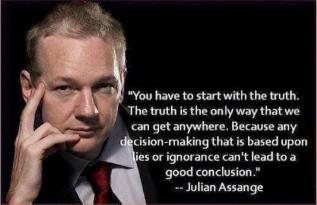
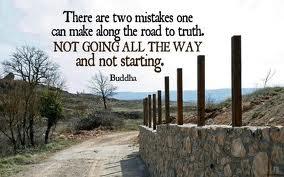
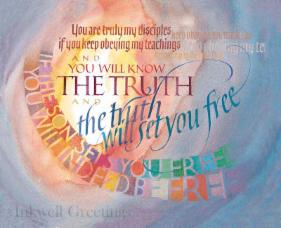

--------------------
TRUTH
MATTERS, A LOT!
People don't always think it does. But, in reality we all search for truth in at least some areas:
- knowing the best ways to prevent/treat a life threatening disease,
- what school to study at and how to get good grades for a career you want (or teach/work most effectively),
- how to clean up an oil spill or nuclear accident best,
- how to make a living and if possible get rich,
- how we should spend our time and money (food, romance, friends, human rights, church, work, etc.)
- what will bring the greatest happiness and satisfaction in life,
- how to stay free and independent,
- how to convince a person we love to date/marry us,
- what helps
individuals, families and nations succeed most
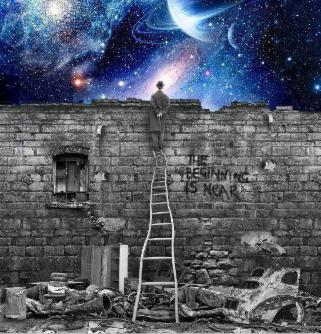
- BIG QUESTIONS
- 1) What view(s)/tool(s) have produced the highest quality and quantity of life for humanity in the past?
- 2) Which ones bring the best quality and quantity of life now when followed wisely?
- 3) Is there a view that has a real evidence that it can solve the billions of cases of injustice in the past and present (ranging from the holocaust to the inquisition to totalitarian regimes)?
- 4) Is there a view which has significant evidence that we can live forever with a rewarding and stimulating quality of life?
These
seem to be the most important questions in life to focus on. Can you
think of others that truly have more value than these? Others can be important, but it seems to me that these should be the priorities.
One of the really cool things is that if the Bible is correct (and as we'll see on this page and others, there is much science that confirms it is in the most important areas), genuine godliness gives us the best of both worlds, this earth and for eternity. This is basically the argument of Pascal's famous Wager that is almost always misunderstood, but is based on this verse. You can't lose by following God since in general it gives the best life on earth and you have a great opportunity at eternity to boot:
“Physical training is good, but training for godliness is much better,
promising benefits in this life and in the life to come.” Paul (1 Timothy 4:8)
This claim of the Bible and the first 2 questions above have already been vindicated by much independent scientific research and historically documented facts. Over 80 years of research for example shows that
religion improves self control significantly & this is also a major factor
in many kinds of success.
"Michael McCullough..and fellow psychologist at the University of Miami, Brian Willoughby, have reviewed eight decades of research and concluded that religious belief and piety promote self-control....[as a result] Researchers around the world have repeatedly found that devoutly religious people tend to do better in school, live longer, have more satisfying marriages & be generally happier."
http://www.nytimes.com/2008/12/30/science/30tier.html
See also:
http://www.sciencemag.org/content/244/4907/933.abstract and
http://www.psy.miami.edu/faculty/mmccullough/Papers/Relig_self_control_bulletin.pdf.
Kenneth Scott Latourette, Sterling Professor at Yale University, wrote,
"Across the centuries Christianity has been the means of reducing more languages to writing than have all other factors combined. It has created more schools, more theories of education, and more systems than has any other one force. More than any other power in history it has impelled men to fight suffering, whether that suffering has come from disease, war or natural disasters. It has built thousands of hospitals, inspired the emergence of the nursing and medical professions, and furthered movement for public health and the relief and prevention of famine. Although explorations and conquests which were in part its outgrowth led to the enslavement of Africans for the plantations of the Americas, men and women whose consciences were awakened by Christianity and whose wills it nerved brought about the abolition of slavery (in England and America). Men and women similarly moved and sustained wrote into the laws of Spain and Portugal provisions to alleviate the ruthless exploitation of the Indians of the New World...By its name and symbol, the most extensive organization ever created for the relief of the suffering caused by war, the Red Cross, bears witness to its Christian origin. The list might go on indefinitely. It includes many another humanitarian projects and movements, ideals in government, the reform of prisons and the emergence of criminology, great art and architecture, and outstanding literature." [A History of Christianity, Vol. II, originally published by HarperCollins Publishers 1953, revised 1975, pp.1470,1471].
If you want the best quality and quantity of life long before intellectuals figure them out, following God's principles in the Bible regarding health, marriage, relationships, economics and other topics has consistently been the best way to achieve that. Bible principles have also inspired the pioneering of the vast majority of human rights in history, which is the foundation for much of western civilization and the freedoms and health and much more that we now enjoy.
There are many other lines of evidence on this page, other pages on this site and links and by many of the most elite scholars and scientists in history who have been convinced that the evidence for Christianity is VERY compelling, far more than any other worldview.. This is a pictorial summary of some major lines of evidence for the God and the Bible.
One of my main concerns with atheism is atheism advocates skepticism at such an excessive level that it influences people to reject partially or totally reject
legitimate scientific and historical evidence and valuable Christian principles that science conclusively
shows improve both the quantity and quality of human lives. I see this happening
at many levels of society. It happens in a variety of cases, but probably most
when the science is not conclusive or science has not yet learned the value of
the ideas that God gave in the Bible. Therein lies its greatest harm, causing
people to deny fully legitimate historical and scientific evidence that is for
the best good of their lives.
We'll
list and discuss/cite much more of the evidence below, but first we need to understand/agree:
- What are fair and objective ways to find and follow truth? What counts as evidence for all competing views and how do we evaluate evidence to find truth?
- Consider some historical realities, context, background and times the Bible was written in that explain some of why it was written the way it was.
- Why it is worth spending hours studying the evidence regarding atheism and Christianity and other views? What are the pragmatic benefits for doing this? (my goal is to design the website so that within ~10 hours of investigation or less, one will be able to make a rational and informed conclusion that God is real and it's best for our lives now to follow Him. But, to give much deeper evidence for those who want/need it).
- What is some of the legitimate evidence for the God of the Bible?
If we don't have some common ground, evidence doesn't matter, no progress or growth happens and everyone just wastes time.So, it is essential to build a fair foundation for reasoning first. Then one side or ideally both side can benefit, at least in understanding the other, and hopefully in changing to move closer to the truth.

I think it's also important to recognize that there are honest, smart, hardworking people in pretty much every group on the planet. We have a lot more in common than we often think. In addition to the concerns about truth listed before, this article talks about many areas that atheists and Christians agree on that people don't often think about:
http://www.cracked.com/article_15663_10-things-christians-atheists-can-and-must-agree-on_p3.html
(NOTE:
I don't agree with all that is said in this link. For example, the
Bible does not teach an eternal hell as this writer claims only one that
ends all abuse, suffering and evil permanently (see http://www.helltruth.com).
It also tells us
that God looks at the consciences of people in all groups and winks at
ignorance (Romans 2:12-16 & Acts 17:21-30). So, I expect to meet
genuine truth seekers from
many backgrounds in heaven, quite likely some atheists as well. But,
rejecting facts, evidence, truth is harmful both to this life and the
next (1 Timothy 4:8 Hebrews 10:26-7). But, it demonstrates several areas
atheists and Christians agree on.
WHAT COUNTS AS EVIDENCE? DOES EVIDENCE = TRUTH?
Many people confuse evidence with truth. In very minor ways evidence can be truth. For example, if a scientist claims that it snows in December in the Alps, observing that happening is evidence and truth. But, usually, many lines of evidence must be gathered and considered. Then they all must be evaluated carefully. The hypothesis that has the most evidence for it, or explains the most evidence is the one considered truth to the best of our knowledge. But, what counts as evidence? There are many types, historical, scientific, legal, philosophical, pragmatic and others. Here are a few examples in brief:
WHAT COUNTS AS HISTORICAL EVIDENCE:
There are many kinds of historical evidence that historians look for. They of course look for artifacts, dig up old cities, find old jars, walls, weapons, bones, etc. Those are all evidence. But, it is often the written sources that tell the stories that make sense of the physical evidence and figure out what happens. Since most people in history were illiterate (sometimes up to 99% and there were no public schools), it's often difficult to find firsthand accounts. But, when they are found, they are highly prized as evidence. The University of Texas says this about several kinds of historical evidence.
“Primary Sources are the most sought after in historical research. Primary resources are firsthand accounts of information. ‘Finding and assessing primary historical data is an exercise in detective work. It involves logic, intuition, persistence, and common sense...’ (Tuchman, Gaye in Strategies of Qualitative Inquiry, 252). Some examples of primary documents are: personal diaries, eyewitness accounts of events, and oral histories.”
“Secondary sources of information are records or accounts prepared by someone other than the person, or persons, who participated in or observed an event.” Secondary resources can be very useful in giving a researcher a grasp on a subject and may provided extensive bibliographic information for delving further into a research topic.” http://www.ischool.utexas.edu/~palmquis/courses/historical.htm
10 TYPES OF SCIENTIFIC EVIDENCE
Scientists use the
scientific method to discover at least 10 main types of evidence and then these
are evaluated to figure out what is true. Some of these can overlap at times
and many are often used together to determine which theory has the most
evidence overall and is considered true.
1) PRAGMATIC EVIDENCE: If
an idea works to solve a problem or benefit life, then it has a high chance of
being true and at least benefits real life. Facts, experiences, testimony,
scientific evidence, historical evidence and all kinds below can be part of
pragmatic evidence. It is ideas that when followed improve and benefit human
lives.
The reason scientific evidence is accepted as a valid way to find truth is
because of its pragmatic results. Cultures around the world accepted science
because they saw people in scientifically literate cultures curing diseases
that they couldn't, inventing numerous wonders of technology, using more
powerful weapons to win wars. It was the practicality of science and its
obvious benefits that gained it its wide acceptance around the globe. It can
obviously be misused (as anything can). But, its benefits are what have proven
to us that it is valuable and a truthful way to learn the nature of reality.
All the methods of science as well as numerous other concepts in nearly all
fields of knowledge have been accepted because they have proven pragmatically
beneficial. Even well known atheists affirm that they have accepted the methods
of science due to the pragmatic benefit that has been derived from them. It is
also because of pragmatic evidence and results that most scientific theories
have beaten their rivals and are taught in textbooks. Example: many home remedies, ways
to save or make money, health principles.
2) TESTABLE/DIRECT EVIDENCE: This is evidence you can detect with your 5senses
and it is repeatable at any time. Gravity, the speed of sound, the temperature
at which water boils, etc. are common examples of this. Creationist Example:
Biogenesis and creationist levels of evolution, natural selection (pioneered by
creationists like Patrick Matthews long before Darwin)
3) PERSONAL TESTIMONY EVIDENCE: Personal testimony is the bedrock of evidence.
No evidence can be discovered, gathered, studied, reported, etc. without using
witnesses and their senses. These can range from amateurs to subjective and
objective scientists and credibility can be different to be sure. But, personal
experience is the bedrock of empirical evidence. People are asked to report to
scientists what they have experienced as a part of many scientific experiments
(gauging what different cultures consider beautiful). Sometimes they are given
surveys. Most experiments also utilize the personal testimony of scientists in
regard to what they have observed/sensed and they report that in journal
articles. Many health studies depend on people giving testimony about their
quality of health, often separated into control groups since scientists simply
don't have time or money to observe 1000s of people for years. Experiments in
linguistics often report what the researcher has personally observed regarding
the improvement of students' language abilities.
4) MATHEMATICAL/STATISTICAL EVIDENCE: Math is an important evidence that almost
all scientific theories use. Scientists couldn't observe the exact position of
the earth and sun from an objective viewpoint outside the solar system centuries
ago. But, mathematical evidence proved to them that geocentrism/epicycles were
wrong and heliocentrism was correct.
5) CONFIRMATION OF PREDICTIONS EVIDENCE: Scientists make logical predictions
based on a hypothesis/theory and then look for confirmations of that. This has
been very important in confirming Einstein's relativity for example and
numerous other theories. One form of this often used in clinical trials is the
null/alternative hypothesis, where the null hypothesis predicts that there will
be no change in patients when a drug is taken. If a change is observed in
patients, then the alternative hypothesis, that the drug has a significant
effect, has evidence that it is correct. Creationists predicted that the
universe had a beginning and an expansion from there and dozens of other
things, many of which were confirmed in the acceptance of the Big Bang. They
also predicted that most junkDNA would have function, a prediction confirmed by
the 2012 ENCODE findings that 80% has known function (but research in this area
is very far from complete and more will certainly be found). Example: Big Bang (confirms creation science),
forensic science, some universal common descent, argument from design, MUCH
creation science, etc.
6) CORRELATIONAL EVIDENCE: We gather statistics and analyze them in a variety
of ways to establish causal relationships. The use of control groups is often
quite important in this area. Correlations are analyzed and as many factors as
possible excluded with different techniques to try to isolate causal factors.
This type of evidence is used to prove beyond reasonable doubt that drunk
driving is a causal factor of accidents, that tobacco is a causal factor of
cancer and others. ENT researchers use correlations to establish which
chemicals, pollutants, mites, etc. are the most significant causes of disorders
such as chronic paranasal and sinusitis rhinitis.
7a) INFERENTIAL EVIDENCE: We look at processes happening now , cause/effect
relationships, etc. and infer that nature operated similarly in the past or in
areas we can't directly access. We logically expect to find similar effects in
nature (although erosion erases some of them) if certain events that we can't
observe/sense directly occurred. We infer or extrapolate from what we can see
and detect traces of past/present events and use that as evidence for what
probably happened in the past.
What is the sun made of? We will never be able to take a direct sample from the
sun of course. But, we can detect from the lines in the spectrum of sunlight
the unmistakable signs of hydrogen and so we deduce that the sun contains a
large amount of hydrogen in it. That is indirect inferential evidence, but it
is compelling evidence. Nobody now saw glaciers across America. But, we see
striations in the rocks in many places. So we infer that glaciers left these
(unless some better theory comes along to explain them). The Big Bang,
creationism, Darwinism, most/all of historical astronomy, paleontology,
forensics and other fields use this type of science. Another example of this is
the recent almost certain confirmation of the Higgs-Bosun at the CERN Hadron
Collider.
7b) EXTRAPOLATIVE EVIDENCE:
This is a common type of inferential evidence. We look at rates of change and extrapolate
those rates back into history to understand what probably happened. ~100
pointing dating methods pointing to a young age for life/the earth and ~40
pointing to an old age for life/the earth depend on this kind of evidence. Global
warming also uses this type of evidence extensively.
7c) LOGICAL &
PHILOSOPHICAL EVIDENCE: Most logical and philosophical evidence is based on
inferences from life, science, history of some type. This is evidence that
makes sense logically and has few or no contradictions and so can be consistent
and true. Examples: Sherlock Holmes, CSI & many real life detective cases,
the Kalaam Cosmological argument for God and others.
8) EXPLANATORY EVIDENCE: When we don't have any direct evidence for an idea,
another way that is sometimes used to figure out which hypothesis is correct is
explanatory evidence. The theory that explains all the evidence that we have
available the best has good explanatory power and evidence. Plate tectonics is
a good example of where explanatory evidence is used to figure out what is
going on way below the ground where nobody can directly see what is happening
and for which we don't have much other evidence. This kind of technique is also often used in
the analysis phase, where we consider all the evidence and weigh the theories
to figure out which one is true. Example:
dark matter, plate tectonics, multi-verse, string theory, the global flood,
etc.
9) CREDIBLE TRACK RECORD EVIDENCE: When a source has a good track record in areas we can check, it is often trusted in many areas above as being evidence for areas that we can’t check at present. But, we must continue to analyze and check it as new evidence becomes available. EXAMPLES: MANY historians of the past, the Big Bang, the general theory of relativity, the Bible, etc.
10) NULL/ALTERNATIVE
HYPOTHESIS:***
Nope...the null hypothesis is never considered factual or proven. I shouldn't
have to teach you this. The Null Hypothesis is only a dummy assertion set up to test the
alternative hypothesis. As the man who invented the concept rightly says:
"We may speak of this hypothesis as the 'null hypothesis', and it should be noted that the null hypothesis is never proved or established, but is possibly disproved, in the course of experimentation." ED quote: 1935 R. A. Fisher, The Design of Experiments ii. 19,
HOW DO WE FIND TRUTH?
But, how do we know if the claims or views of the Bible or buddhism, secularism, atheism, scientism or anything are true? Many atheists ask some very serious and honest questions about religion. What makes Christianity right and all its
competitors wrong? Why not believe Zeus of the Greeks or the millions of Indian
gods or the oracle at Delphi? All of these have made many claims in history,
sometimes claims that they have been given instructions by gods through
prophets/seers, etc. And why not atheism or agnosticism? And then what about
the different religions claims about creation? How do you know which one is
correct? And then we have denominations as well. How do we choose the correct
one and why should we?
These are all very good questions.
There are several ways people use to decide what truth is. But, which one is best to follow? I suggest that it is the one that has the best track record of producing benefits for humanity.
1) Tradition: Just follow the elders. Why change? Sometimes OK. But, sometimes not.
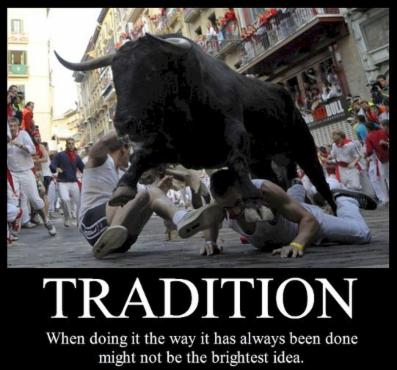
2) Pragmatics: Do whatever seems to work best for immediate decisions.
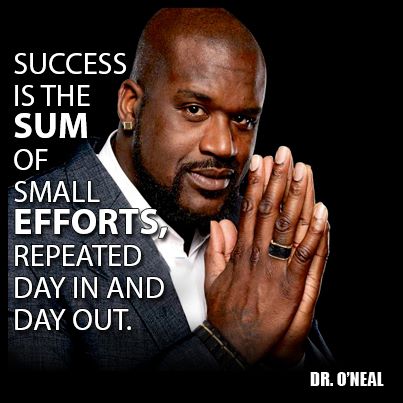
3) Trust important people/institutions: Listen and follow friends, parents, schools, establishments (religion, science, historians, politics, etc.) without caring much about checking evidence.
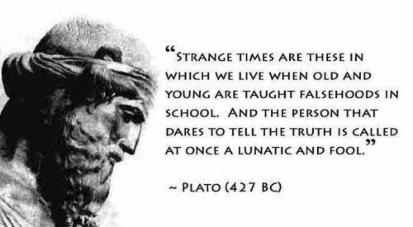

4) Use Fallacies: Some establishments unfortunately use a priori fallacies to arrive at "truth". They decide what is true first and then look for evidence to confirm it and deny anything that conflicts with it. This, which is kind of like hoping you'll win a million dollars at Las Vegas. 2 common types are:
A) Methodological naturalism which has been adopted by most atheists and some theists says,
‘Even if all the data point to an intelligent designer, such an hypothesis is excluded from science because it is not naturalistic.’ Kansas State University immunologist Scott Todd, correspondence to Nature 401(6752):423, 30 Sept. 1999.
B) Presuppositional apologetics theology which says,
"By definition, no apparent, perceived or claimed evidence in any field, including history and chronology, can be valid if it contradicts the scriptural record." http://www.answersingenesis.org/about/faith (The Bible does not anywhere make any claim like this. See http://www.truth-is-life.org/GoodFaithNeedsEvidence.html)
Both of these are fallacies and are no different from saying:
"Even
if all the data point to a spherical earth, such an hypothesis is
excluded from science because it is not a flat earth conclusion that lines up with our dogma."
There may be sincere and smart people with these views who can do find legitimate evidence and do good work. But, their conclusions cannot be objective because they start reasoning from fallacies and censoring rival evidence.
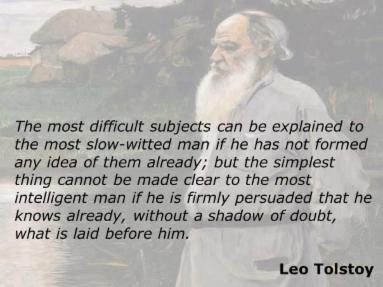

A bigger problem is that if we follow a priori fallacies, then we have no way to rational
compare the truth of our view against any other view, because each camp denies that the other
has evidence. This is one example of
what Dr. Thomas Kuhn called incommensurability in his seminal work in the
philosophy of science, "The Structure of Scientific
Revolutions." There is no
objectivity, no standards that apply to all competing views, etc. So, rational
discussion is impossible. They do not have a fair playing field and it's impossible to change any views since by definition no contrary evidence is allowed to count as evidence. This and other fallacies as well as indisputable
reality of significant bias in academia and in every human being is probably the
biggest reason why you see many scientists and academics having radically different views on some topics at times.
5) FOLLOWING THE EVIDENCE WHERE IT LEADS:
When scientists/historians do their research, Ph.Ds. write academic
papers, why do they think their hypothesis or theory is true instead of any of
the many rivals that exist? It is of course because of evidence and they write
to show that their idea/concept/theory has more and better quality evidence than any rivals.
This is the same exact reason why 1000s and 1000s of scholars in many fields
converted to Christianity as well as its claims about creation science (in certain
cases some became creationists first due to evidence and then Christian because
the Bible's specific claims matched the physical evidence best). It was precisely because they saw convincing evidence that met the highest standards required of worldviews in a variety of areas and no other competitors with more and better evidence. They then made the rational choice to follow the theory/worldview with the most evidence in the most important areas. This ranged from personal experience (no empirical evidence can be discovered, studied or reported without using human senses and experiences of people past and present. As academic textbooks rightly say,personal experience is the foundation of all empirical evidence) to historical to scientific to philosophical and others.
A FAIR AND RATIONAL PROCESS TO FIND TRUTH:
1) CONSIDER ALL HYPOTHESES: It's very important to question all establishments (political, educational, scientific, religious, historical, etc.) since NO establishments on this planet have ever been infallible. In order to do and to make the most progress, we must allow all hypotheses, especially dissident ones that rival establishments, to compete fairly with the dominant ones. When this is done it has produced many of the greatest progress in all fields in history. Don't use dogma or establishments to ban rational investigation. If an idea is wrong, the evidence will falsify it. That's the only way to do rational investigation.
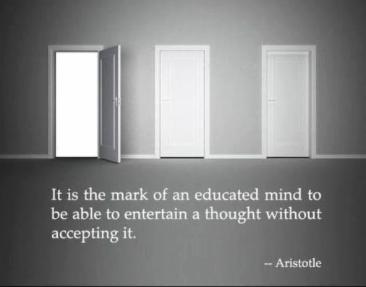
2) GATHER EVIDENCE: Search for and gather evidence of a variety of kinds (pragmatic, scientific, historical, philosophical, mathematical and other kinds of evidence are all valuable and helpful types of evidence, but the most important kind is pragmatic evidence). Learn about evidence from thinkers on both sides. Don't ignore or distort evidence for the dominant or dissident view.
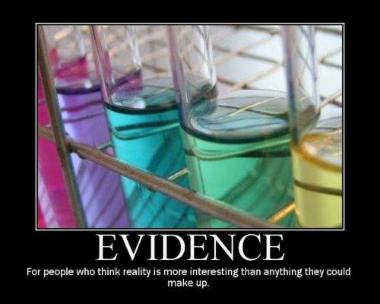
3) LISTEN TO DIFFERENT HYPOTHESES/THEORIES THAT CLAIM TO EXPLAIN THE EVIDENCE BEST
(using the scientific method, historical method, etc. )
Consider all the evidence you have learned about. Listen to leading thinkers and which hypothesis/theory they think explains the evidence best using the scientific, historical methods and other objective tools. Which accounts for the most evidence best? Are they ignoring some evidence? Are they using fallacies in their reasoning?
If you see establishments using fallacies in their reasoning, that's a major red flag and a good reason to very seriously investigate their rivals to see if evidence is being censored. If you don't know that propaganda is used in the west as well as in communist countries, just consider the stories of Julian Assange, Edward Snow, etc.
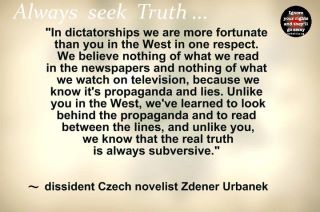
Also keep in mind that all humans are biased. The only humans that are not biased are dead. Some are less biased and some more so, but all are biased.
Dr. Rick Szostack has a Ph.D. from Northwestern University and has been a professor of economics and interdisciplinary studies at the University of Alberta for over 25 years. Along with many other academics he writes about the realities of bias in academia and the challenges for establishments to be objective.
-----
Are scientists objective? No. Scientists are not computers but complex organisms with competing genetic drives and quite imperfect perceptual capabilities. They will often see what they want to see, or what they think it is important to see, and can be expected to miss much that either conflicts with or seems entirely extraneous to their view of the world? Are scientists completely subjective, then? No. While some methods are open to greater exercise of subjectivity than others, all require some confrontation with reality in a manner that limits the researcher's ability to ignore evidence that is uncongenial...individual scientists are influenced by biases. But, are often able to rise above these biases in order to achieve insights that challenged widely held beliefs and/or offend the powerful...if contradictory results are evaluated seriously by the scientific community, bias will be overcome in the long run. [But] real world evidence may thus not always be powerful enough to overwhelm bias.
A naive view of science would hold that scientific debates are decided on the basis of which side marshals the most persuasive evidence and logical argument...But, humans are not (entirely) rational calculating machines... In the case of social biases, much can be achieved by the entry of large numbers of women and ethnic minorities into the world of science...scientists can strive to ensure that the scientific enterprise is open and empirical: that it takes conflicting views seriously, and subjects these to analysis through the use of (generally more than one) scientific methods.
Disciplinary biases may be of even greater important than cultural, political, or social biases. Moreover, disciplinary biases can reinforce the other types of bias (see Szostak, 1999). Scientists face much greater pressure to accord with disciplinary values than with wider societal values: their ability to be hired, promoted, published, heard, and cited are all influenced by their willingness to act in accord with disciplinary preferences with respect to theory, method, data, and the phenomena of study. Those who insist on using unusual theories or methods, or examining unusual topics, may find themselves ignored and even unemployed. It would be an unusual human being who would be completely impervious to such pressures. Scientific curiosity may drive research, but is itself shaped by the community..." "Classifying Science: Phenomena, Data, Theory, Method, Practice" by Rick Szostak, p. 167-8. books.google.co.kr/books?id=UKWxwTLq4OYC&pg=PA160&dq=is+science+biased%3F&hl=en&sa=X&ei=nGSXUYi9Mc2DlAXksIHoBQ&redir_esc=y#v=onepage&q=is science biased%3F&f=false
4) FOLLOW THE WEIGHT OF EVIDENCE/USE THE GOLDEN RULE IN ANALYZING EVIDENCE /NO FALLACIES: Use the golden rule in reasoning which theory is correct. Almost all worldviews agree that the golden rule is a foundation for ethics. It's true in reasoning as well. It's very important to use the golden rule in reasoning as well if we want to find truth. If we don't, it's very easy for us to deny evidence and truth.
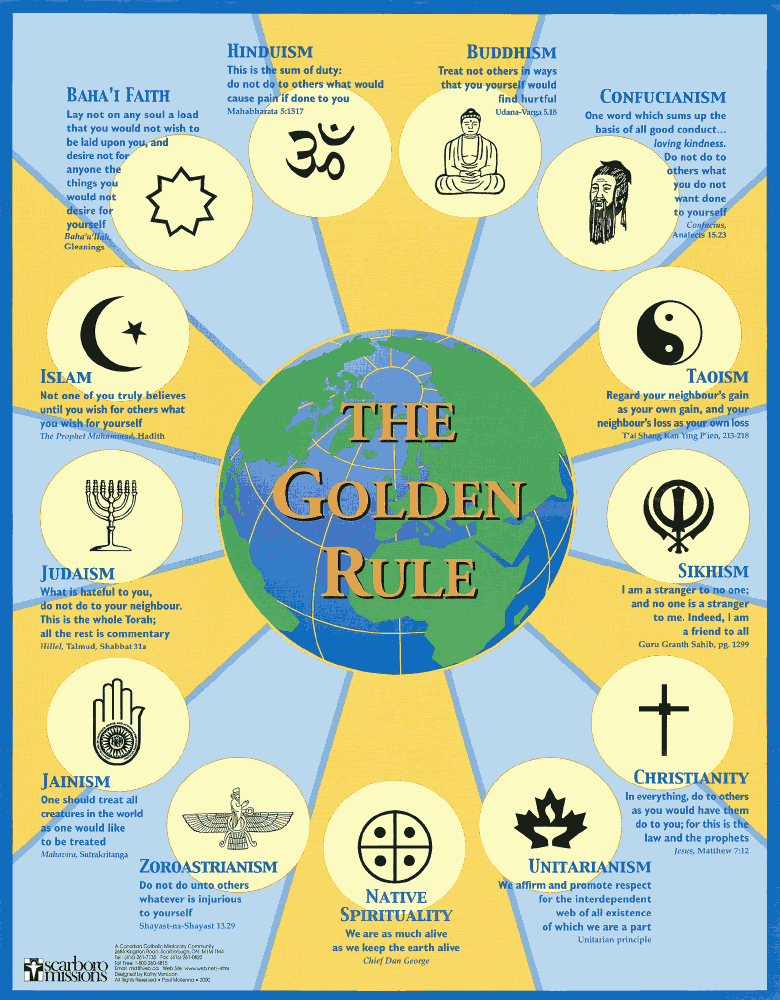
This means that we must use the same standards for all competing hypotheses, whether we like them or we don't, as much as we can humanly do. The fundamental reason that fallacies are wrong is because they violate this intellectual golden rule and have a really bad track record of finding truth. Avoid these and other fallacies like the plague, since you don't want them used against you (See https://yourlogicalfallacyis.com/ for examples):
- a priori fallacies (explained before)
- cherry picking: Anyone can pick out the worst person or event in a rival view and the best person/event in their own view. This is not fair or rational to do. What is the overall good vs. the overall bad is what needs to be considered as well as possible. Do sort of a cost/benefit analysis.
- double standards (these are about the worst at destroying any real search for truth, like a game where team A gets 1 point for each basket and team B gets 100 points for each basket. One of the worst cases of this is requiring extraordinary evidence for extraordinary claims, which requires unreasonable amounts of evidence for abiogenesis, atheism, Darwinism, creationism, theism and many others),
- straw men: Nobody likes their views to be misrepresented. Don't do it for others.
- special pleading or
special treatment for any view (If you insist on using any favoritism, it should be given to those
views/tools that contribute the most to quality of human life. But, aim
for no favoritism.)
Follow the hypothesis that has the best and most evidence, esp. in important areas for life, and consider that the truth. Investigate it carefully for a good amount of time. But, don't delay following it for too long. The more you delay, the more advantages and benefits you will lose.
Peter Lipton, Gilbert Harmann, Wesley Salmon, William Lycan, Paul Thagard, and others list these ways for helping evaluate evidence to decide which theory is most likely to be true:
- Testability: better explanations render specific predictions that can be falsified or corroborated.
- Scope (aka “comprehensiveness” or “consilience”): better explanations explain more types of phenomena.
- Precision: better explanations explain phenomena with greater precision.
- Simplicity: better explanations make use of fewer claims, especially fewer as yet unsupported claims (“lack of ad-hoc-ness”).
- Mechanism: better explanations provide more information about underlying mechanisms.
- Unification: better explanations unify apparently disparate phenomena (also sometimes called “consilience”).
- Predictive novelty: better explanations don’t just “retrodict” what we already know, but predict things we observe only after they are predicted.
- Analogy (aka “fit with background knowledge”): better explanations generally fit with what we already know with some certainty.
- Past explanatory success: better explanations fit within a tradition or trend with past explanatory success (e.g. astronomy, not astrology).
http://commonsenseatheism.com/?p=11046
5) NEVER EVER give up a theory, doctrine, concept because there is something we don't know or can't answer at present. Many theories in academia have difficult questions that no one knows the answer to. Questions are great areas for further research and investigation, but they are not evidence. It is also not proper to use them to falsify or ignore evidence. Be careful confuse questions with evidence. ONLY change from theory/doctrine A, if theory/doctrine B shows it has MORE and BETTER evidence.
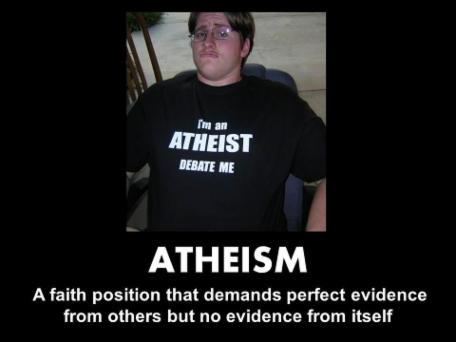
6) ACT TO FOLLOW TRUTH: If you know truth and don't follow it, you've just wasted your time and life. Truth is useless unless it is put into action. JUST DO IT!
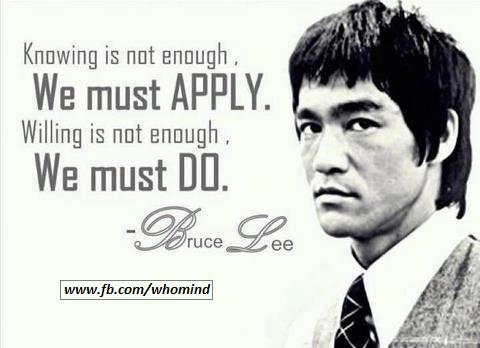
7) STAY OBJECTIVE/KEEP LEARNING: Never treat any position as set 100% in concrete. Always be open to letting other views demonstrate that they have more evidence than your current view does and to considering changing if they do.
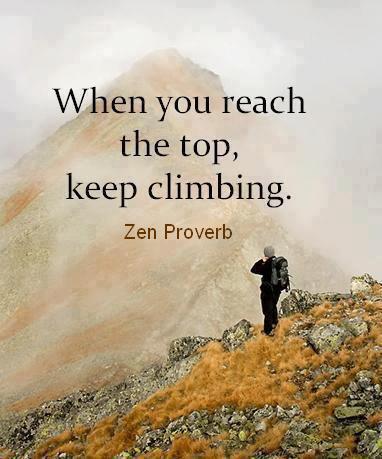
THE VALUE OF LEARNING, SKEPTICISM AND OBJECTIVITY
The scientist and philosopher Alfred Korzybski warned about about 2 errors
that many people often make, saying:
"There are two ways to slide easily through life; to believe everything or
to doubt everything. Both ways save us from thinking. "
Learning, skepticism and objectivity have very important places in gathering
and analyzing evidence and the Bible promoted these in many places and some
other cultures/religions did as well.
- "Test everything that is said. Hold on to what is good. Stay away from every kind of evil." 1 Thessalonians 5:21-22 (NLT)
- "But if I do His [God's] work, believe in the evidence of the miraculous works I have done, even if you don’t believe me." John 10:38 (NLT)
- "The first to speak in court
sounds right—until the cross-examination begins." Proverbs 18:17 (NLT)
See many more examples here: http://www.truth-is-life.org/GoodFaithNeedsEvidence.html
This last verse is similar to a statement of Darwin's that I STRONGLY agree with:
"A fair result can be obtained only by fully stating and balancing the facts and arguments on both sides of each question" Charles Darwin, 1859, Introduction to Origin of Species, p. 2
We should NOT just believe whatever people claim. That's irrational and can be deadly as many cases in history have shown. But, it is equally irrational and dangerous to be too skeptical.
DANGERS OF EXCESSIVE SKEPTICISM
" If you are too much in the habit of being skeptical about everything...you will be standing in the way of understanding and progress. " - Carl Sagan
"I would sooner believe that two Yankee professors lied, than that stones fell from the sky" - Thomas Jefferson, 1807 after hearing an eyewitness report of falling meteorites.
"I am not very skeptical... a good deal of skepticism in a scientific man is advisable to avoid much loss of time, but I have met not a few men, who... have often thus been deterred from experiments or observations which would have proven servicable." - Charles Darwin
"There is no better soporific and sedative than skepticism." -Nietzche
This is a story that always reminds me to have
healthy skepticism of establishments. But, it's important to be a bit
skeptical about every group, establishments OR dissidents. Skepticism has
important value for sure (as the Bible advocates repeatedly. But, it can be excessive and
misused. When skepticism causes people to deny legitimate evidence or use fallacies,
then it become irrational and sometimes very harmful and even deadly. An
example of this is the case of Dr. Semmelweis whose story you can watch
summarized here:
Blood
and Guts - A History of Surgery [5 of 5] Bloody Beginnings
www.youtube.com/watch?v=H5I9JoFR8NU (~42:40-~55:00)
Semmelweis strenuously argued, “Puerperal fever is caused by decomposed material, conveyed to a wound. I have shown how it can be prevented. I have proved all that I have said. But while we talk ,talk, talk, gentlemen, women are dying. I am not asking anything world shaking. I am asking you only to wash. For God’s sake, wash your hands.”
Semmelweis had powerful scientific evidence. It was repeatable. But, the mechanism wasn't observable. He couldn’t show or explain why washing hands was able to reduce and eliminate disease. The scientists also ridiculed the idea that bacteria you couldn’t even see could kill someone. They’d been delivering babies this way for 1000s of years and saw no reason to change the tradition. Eventually Semmelweis was let go and returned home in disgrace. It was an extremely extraordinary claim for them to accept and they rejected very strong scientific evidence in favor of a "lack belief" in scientific research because of emotions, traditions, their philosophical positions and ignorance about bacteria and others. As a result, 1000s of women died.
Back in Hungary, Semmelweis instituted the same reforms of cleaning and washing things between each patient. The death rate did a nose dive again, from ~30% down to 1%. In delivering 8,537 babies, he lost only 184 mothers—about one in fifty. Semmelweis died insane at the age of 47, his wash basins discarded, his colleagues laughing in his face, and the deaths of thousands of women ringing in his ears.
Because these scientists lack belief in scientific evidence that Semmelweis had demonstrated, 1000s of women died. Unfortunately, they also ignored or lacked belief in Bible medical concepts which could have saved many lives if followed. 3,000 years ago before any scientists knew about germ theory, bacteria, the spread of diseases, the Bible gave principles to help people avoid diseases such as the ones that killed 1000s of women in Austria.
“Whoever touches the dead body of any person shall be unclean seven days. 12 He shall cleanse himself with the water on the third day and on the seventh day, and so be clean. But if he does not cleanse himself on the third day and on the seventh day, he will not become clean.” Numbers 19:11and
"And when he that has an issue is cleansed of his issue; then he shall number to himself even days for his cleansing, and wash his clothes, and bathe his flesh in running water, and shall be clean" (Leviticus 15:13).These doctors were unfortunately complicit in the deaths of 1000s of women solely because they were too skeptical of legitimate science and skeptical or ignorant of Bible principles. They denied legitimate evidence due to bias, traditions, etc. and it killed 1000s.
HISTORICAL CONTEXT/BACKGROUND--COMMON SENSE VS. EVIDENCE
"Common sense is the collection of prejudices acquired by age eighteen. " Einstein
Before we continue, there is a significant difference between common sense and
evidence/rationality. It's important to understand that much of the common sense that everyone learns
in school now regardless of whether you are atheists or theists, is directly
due to ~4,000 years of the Judeo-Christian worldview sacrificing enormously to
promote concepts of human rights, health, public education and rationality in
western civilization that simply did not exist much if at all in the ancient
world. Many lay people and even many
scientists and historians aren't very well informed about facts that have been solidly
documented by highly respected historians and scholars. Some people critize concepts
given in the Bible without realizing their value, context or the reality that
these principles gave birth to many of the most important freedoms and
knowledge that we have today. Most ancient cultures simply did not have the
values in most areas that modern people do. They ran mostly on the golden rule,
whoever has the gold, makes the rules. They boasted of torturing and abusing
people and posted in on murals. Common people were mostly just pawns to be used
by the powerful to enrich the wealthy, cannon fodder or to build up state
glory, etc. Up to 99% of people in history were often illiterate due to not
having public education (which Judeo-Christianity also pioneered). Without Judeo-Christianity and it's influence, there's a very high likelihood that most of us would just be serfs slaving away at the whim of some chieftain, maybe working on something like the Great Wall of China (where ~1 milllion Chinese died). And it is absolutely impossible that we would be communicating with people around the world by internet as we are. See more of
this explained in these links.
www.truth-is-life.org/GoodLifeEvidence.html &
http://www.truth-is-life.org/ScientificEvidence.html
The Bible records God reasoning with a group of ignorant, illiterate and incredibly
stubborn slaves to persuade them to follow principles that would empower them
to become a world leader and a blessing to all. Israel was at first nearly at ground zero rationally and morally and many other
cultures were not that much different. God had to deal with them kind of like
Einstein teaching relativity to kindergartners. The rules he gave them were ideal
for their maturity level and the cultural context around them. Nobody else at their time had hardly any comprehension of the value of
the many principles of human rights, economics, justice, equality, health, etc.
that God was trying to imbue in the Israeli culture. God promised:
"If you fully obey the Lord your God and carefully follow all his commands I give you today, the Lord your God will set you high above all the nations on earth. All these blessings will come on you and accompany you if you obey the Lord your God" Deuteronomy 28:1-2
Sometimes skeptics will wonder why God didn't give more advanced principles in
the Bible. Well, if you look at the surrounding cultures, the principles God
gave to Israel were light years ahead of the principles of other cultures and
sometimes are in advance of even modern cultures. And if you consider how frequently they
stubbornly rebelled against the baby steps out of ignorance that He did give
them, you will have another answer. It is quite unreasonable to demand that God
require illiterate slaves to be at the same level of maturity as we who are
benefiting from ~4,000 years of Judeo-Christian influence on the world that
has RADICALLY changed it? that's just not reasonable. Wise teachers give
students only what they are able to handle. God gave them as much as they were
able to handle, but not too much.
"Now what I am commanding you today is not too difficult for you or beyond your reach....I have set before you life and death, blessings and curses. Now choose life, so that you and your children may live." Deuteronomy 30:11,19
The principles of the OT were the best for their time, but they were not the ultimate level God wanted them to achieve. They were just 1st steps on the path to greater progress. Even much later in the New Testament Jesus told his disciples who had been with Him 3 years.
“There is so much more I want to tell you, but you can’t bear it now. John 16:12
Unfortunately Israel rebelled so much that God eventually abandoned them to
their own stubbornness. But, even though they only partially followed the
principles of God with much rebellion, the promise that God gave to Abraham has
come true.
"And through your descendants all the nations of the earth will be blessed—all because you have obeyed me.” Genesis 22:18(NLT)
Some of the great progress
that the entire world has been blessed with in many important areas comes from the Judeo-Christian worldview and is summarized in these websites.
http://hebrewhistory.info/
Other cultures have made significant progress in different areas, through much
trial and error, failure and success. But, no one had the incredible template
for individual and national success that exists in the Bible that has
dramatically changed the lives of almost every person living in the modern
world.
Unfortunately, modern atheists, skeptics and all too many Christians as well, are repeating the same stubborness of Israel, failing to understand the reason for many principles God has given. Because of this, they also fail to solve many modern problems as quickly as they could and fail to incredible heights of success that God has given foundational principles to help us achieve. It is quite an irony that modern people are repeating the stubbornness of ignoring God's ideal principles of Israel and then criticizing God for not giving more truth when they have not even been humble enough to follow and learn from the elementary truths that God has given us already. This is another example of pride, which is a problem that cripples progress and growth at all levels more than almost anything else.
TRUTH NEEDS TO BE SIMPLE FOR IT TO BE UNDERSTOOD & USEFUL TO EVERYONE
When people look at the Bible, many parts appear simple on the surface (although some parts are quite complicated) & the temptation to arrogance kicks in. How could something from so long ago and that appears so simple still be useful for us today? But, wise people understand that:
- "Any intelligent fool can make things bigger, more complex, and more violent. It takes a touch of genius -- and a lot of courage -- to move in the opposite direction.” Einstein
- "Everything should be made as simple as possible, but not simpler." Einstein
- “Simplicity is the ultimate sophistication.” Da Vinci
- “Genius is the ability to reduce the complicated to the simple.” C. W. Ceran
Much of the Bible is written in simple language. Why? In law, surgery, some
parts of science & other areas, it’s OK to have a few elite knowing the
complex truths & then produce products for the masses or use their skills
for those who need them. There’s no need for all to know complex truths. But,
in other fields, it’s starkly different. In communication, literacy, health,
theology & many other areas, if each individual doesn’t know the truth,
they will suffer or be limited in many ways. So, God put some truths of the greatest value in
the Bible in simple language so that even simple people could understand &
choose to follow them.
In addition, while something may appear simple to do and use, it may take a great deal of knowledge to make it simple. Computer programs like MS Word and facebook, cell phone apps are easy to use. But, it took a great deal of knowledge and research to create them. It's similar with many concepts in the Bible. Many concepts are quite simple to understand, but it takes an incredible amount of sophistication and wisdom to create them and make them simple enough for all to understand and follow.
WHY IS THE ISSUE OF WORLDVIEW & ATHEISM VS.
CHRISTIANITY IMPORTANT?
The
topic of atheism vs. Christianity is by far the most important issue in history
and there is nothing at all worth investigating with the highest objectivity we
have. Here are some reasons why and :
1) Much scientific research demonstrates that following Bible principles great improves and advances quality of life for human beings at all levels.
2) JUSTICE FOR BILLIONS OF VICTIMS IN HISTORY AND THE PRESENT:
There have been billions of injustice, torture, abuse and mass murders in history. If there is no God, none of those people will ever have a chance to live a decent and happy life. Only God can do justice for these abused people in history. Atheism has no answer, nothing to offer at all, no solution. As someone who has worked to promote human rights for decades, I care a lot that people who have been abused have a chance at a better life. God alone is able to do that.
3)
ETERNAL LIFE VALUE: Jesus said, "And what do you benefit if you gain the
whole world but lose your own soul?" Mark 8:36 Paul and Isaiah agreed
saying,
“No eye has seen, no ear has heard, and no mind has imagined what God
has prepared for those who love him.” 1 Cor. 2:9
If there is a God, we will be able to explore this world and the
universe in ways that scientists and thrill junkies would give their
left arms for. Imagine surfing cosmic waves around the Orion Nebula or
figuring out the mechanics of dark matter or string theory or others. If
God created the universe, eternity will be filled the most thrilling
adventures you can possible imagine. Here's a video tour of a small part
of the universe we could explore.
X
Also,
if there is no God, never be able to see those you love who have died, meet
incredible heroes of history, and many in history and now will never have
justice for the abuse they have suffered.
4)
IDENTITY/VALUES/OBJECTIVITY/ SPENDING: The worldviews that society adopts
influence our identity and lives in profound ways. They influence our choices
in govt., laws that are passed, how we spend money, objectivity, how science is
done, values we vote for and much more.
WHAT EVIDENCE IS THERE FOR CHRISTIANITY?
For any view to be rational, it must have significant evidence and
ideally more evidence than rivals. Many of the most elite historians,
scientists and scholars in history and the present have been convinced that
Christianity has this and we will discuss some of that below. But, these are
some brief reasons why it's important and why I can not rationally justify
denying evidence for God, of which there is a profound amount. As you read,
remember that the most important kind of evidence to determine truth is
pragmatic evidence (more details about this on other pages).
1) PRAGMATIC, QUALITY/QUANTITY OF LIFE EVIDENCE: Paul wrote: “Physical training is good, but
training for godliness is much better, promising benefits in this life and in
the life to come.” 1 Timothy 4:8
The most important type of evidence is pragmatic evidence because it improves
life and is the reason people have accepted many methods as useful in finding
truth, such as the scientific method, historical method, etc. There are moral and happy/successful people
in nearly every group, but on average, many respected scientists and historians,
often atheists, agree that following the principles/habits of the Bible
significantly increases health/longevity, being much happier in life and
marriage, better self control, individual and national success, better grades,
less suicide, pioneering human rights, volunteering, sacrificing for others and
much more at individual, national and worldwide levels. For
example,
"Michael McCullough..and fellow psychologist at the University of Miami, Brian
Willoughby, have reviewed eight decades of research and concluded that
religious belief and piety promote self-control....[as a result] Researchers around the world have repeatedly found that
devoutly religious people tend to do better in school, live longer, have more
satisfying marriages & be generally happier."
http://www.nytimes.com/2008/12/30/science/30tier.html
See also: http://www.sciencemag.org/content/244/4907/933.abstract
http://www.psy.miami.edu/faculty/mmccullough/Papers/Relig_self_control_bulletin.pdf.
I've seen and experienced the power that God gives people to change
addictive habits, learn new ways of living and radically change for the better
as well as falling victim to dysfunctional habits. I've also seen those who
rebel against this and there's often a very dramatic difference. Many
experiences are listed here:
http://www.youtube.com/playlist?list=PL0361CAE3DB6FE0D5
www.iamsecond.com
Lester Trubey on the right is my grandpa. When I asked him his secret of a long, happy and useful life, he said:
1) God's blessings (from following God's wisdom)
2) Not smoking (worth 5-10 years extra life)
3) Not drinking (worth 5-10 years extra life)
4) Being vegetarian (worth about 10+ years of life) and
5) Marrying a wife who didn't nag ;). (worth ~3 years extra life according to Dr. Oz)

Dan Buettner of the secular Blue Zones research foundation reports that those who have followed Bible
health principles even now live 10 years longer than the average (see 11:30+).
Of course religion has been misused at times to do harm. The same is true of education, science, government, militaries, etc. But, if we look at the overall good vs. misuse/harm done, like science, Christianity has produced some of the most profound benefits in history, including pioneering most of the foundational methods and branches of modern science itself.
The Secular Benefits of Christianity
See more at:
http://www.heritage.org/research/reports/2006/12/why-religion-matters-even-more-the-impact-of-religious-practice-on-social-stability and
www.truth-is-life.org/GoodLifeEvidence.html
http://www.truth-is-life.org/jubileeeconomics.html
Again, one of my primary problems with atheism is that it influences people to reject following the principles that Christianity advocates that have brought great benefits to the lives of millions of people. This is especially true when science has not yet learned why certain godly principles are valuable yet, which is a continuing problem.
2) PROPHECY EVIDENCE: There are 1000s of specific and detailed prophecies that have come true. But, anyone can make a prophecy about the future. I can prophecy that I will be at the same job next year, and it will very likely come true. Does that prove it's from God? Of course not. To prove that they are supernatural, they need to meet certain criteria:
1. The prophecy was indisputably made before the event it predicted. If it was made after the event it predicted, it's nothing special. It's just postdiction and anyone can do that.
2. It's specific. Nothing vague or ambiguous that can be fulfilled by anything. For example a prophecy saying that there will be some disaster in the future sometime will not be impressive at all.
3. It's something that shows that supernatural power had to be involved for it to come true.
4. It's difficult/impossible for the person or culture making it to cause it to come true. Prophecies that are fulfilled after the life of the person making it would be more impressive. Prophecies fulfilled by powers in different cultures from the one making it are also more impressive.
5. It can be tested and confirmed by independent sources.
http://www.reasons.org/articles/articles/fulfilled-prophecy-evidence-for-the-reliability-of-the-bible
Here's one of the most amazing prophecies in the Bible that covers ~2,500 years and has many specific details that have been fulfilled in incredible detail.
https://www.youtube.com/watch?v=Bivw_ht2bps&list=PLE222A0207FDAF9BB
3) EVIDENCE FOR THE RESURRECTION:
There is more evidence for Jesus resurrection and some other supernatural events than for many figures and events in history textbooks. See a summary of good evidence for the resurrection of Jesus, and thus eternal life for us as well, at this website:
http://www.truth-is-life.org/Resurrection.html
4) ORIGIN & AGE OF THE UNIVERSE: Matter, energy, the universe and its
natural laws were created by God and since that initial creation have been
expanding. At least the initial aspects of this must have been ex nihilo. The
main alternatives to ex nihilo are steady state or a dozen other ancient
cosmologies (debunked and abandoned by science) and infinite regression
(untestable and unanswerable scientifically or logically). Creation at present
has beaten all other ancient competitors in this area and current cosmology is
building on this foundation(even if they want to sweep that fact under the rug
due to bias against creation science). Keep in mind that Even ONE claim or
prediction that is confirmed is evidence. This is just a basic understanding of
science. The weight of evidence overall determines what is true to the best of
our ability.
If you are unacquainted with the fact that confirmed predictions count as
evidence in science and have NOTHING to do with opinions, I suggest you start
by reading these 2 sites about how 2 predictions of Einstein were confirmed by
Gravity Probe B and that greatly increased our confidence that his concepts
about relativity are true.
http://einstein.stanford.edu/MISSION/mission1.html
and http://einstein.stanford.edu
BACKGROUND:
1st, check out the ~20 different cosmologies that existed in
history, esp. the ones ~2-3,000 years ago and compare them to the Bible’s
model:
--the shape of the universe was like a man
(Jainists)
--The Earth and the Heavens form a unit within
infinite "waters of chaos"; the earth is flat and circular,
(Babylonian)
--At the center of the Universe is a central fire,
around which the Earth, Sun, Moon and planets revolve uniformly. (Pythagorean)
--Universe exists unchanged throughout eternity.
(Aristotlean)
and others.
http://en.wikipedia.org/wiki/Cosmology#Historical_cosmologies (note that the
description of biblical cosmology there has been copied and pasted from the
Babylonian one there and biased people won't allow the facts below to be listed
for Biblical cosmology, using double standards)
BIBLICAL MODEL OF COSMOLOGY
[The Bible] (c.2000 BC-100 AD)
A created universe with subsequent expansion and a round/spherical earth
hanging on nothing.
Biblical cosmology speaks of God creating the universe (Hebrews 1:2) the
movement of the stars after that beginning (Job 38:31), ~15 verses speak of an
expansion stretching from that beginning (Isaiah 44:24, Isaiah 42:5; Isaiah
45:12; Isaiah 51:13, etc.) and a number of stars comparable to the grains of
sand, but finite (Psalms 147:4, Genesis 22:17) and a round/spherical earth
resting/hanging on nothing (Isaiah 40:22, Job 26:7).
1) The Universe had a beginning:
Hebrews 1:2 says, “through the Son He (God) created the universe.”. This is a
strong statement for a beginning.
2) Science describes the universe in ~5 terms:
time, space, matter, power, and motion. Genesis was written ~1450 BC. Genesis
1:1,2 and all these aspects were included from the very beginning.:
"In the beginning [time] God created [power] the heaven [space] and the
earth [matter] . . . And the Spirit of God moved [motion] upon the face of the
waters."
3) God created many things through the power of His word. Logically, at least
some aspects of creation had to come into being out of nothing (ex nihilo).
“The Lord merely spoke, and the heavens were created. He breathed the word,and
all the stars were born.” Psalm 33:6
“…for he (God) issued his command, and they came into being.” Psalm 148:5
4) God speaks of the movement of the stars:
““Can you direct the movement of the stars—
binding the cluster of the Pleiades or loosening the cords of Orion?”
Job 38:31
5) ~15 verses in the Bible also speak of a stretching of the universe.
“This is what the Lord says—your Redeemer and Creator: “I am the Lord, who made all things. I alone
stretched out the heavens. Who was with me when I made the earth?” Isaiah 44:24 (see
also: Isaiah 42:5; Isaiah 45:12; Isaiah 51:13, etc.).
6) The number of stars is incredibly large (like sand), but, finite since they
can be counted and are named.
“I will multiply your descendants[a] beyond number, like the stars in the sky
and the sand on the seashore.”Genesis 22:17
“He counts the stars and calls them all by name. Psalm 147:4
7) The earth hangs on nothing.
“He stretches out the north over the void and hangs the earth on nothing.” Job 26:7
In regard to how these support an expansion of the universe, consider:
a) The term stretching is linguistically about the same as expanding,
considering translation from a different language/culture, the ancient minds
and simplified language God had to use to make it understandable for them.
b) The term heavens, shamayim (שָׁמַיִם), is used to refer to both
the earthly sky and the universe.
3) To get from a universe with a beginning to what human beings have been able
to see, an expansion is required. This is simple logic and this concept was not
at all foreign to the Hebrew mind.
We have a beginning to the universe and movement of stars and stretching
concepts as above and observations of a very large number of stars and
constellations and more. These all together require that the biblical cosmology
believes in a universe with a beginning and an expansion from that.
For 3,000+ years, while the brightest intellectuals taught dozens of ideas
about cosmology, the Bible gave a model that is incredibly close our modern
concept.
EVIDENCE: Many scientists have
done research providing evidence of a universe with a beginning and an
expansion. The red shift, cosmic background radiation, movement of galaxies, many
aspects of the The Big Bang theory and more all confirm a beginning to the
universe and a subsequent expansion. Arno Penzias, co-discoverer of the microwave background radiation and
1978 Nobel Prize recipient in physics, stated
The best data we have (concerning the big bang) are
exactly what I would have predicted, had I nothing to go on but the five books
of Moses, the Psalms, the Bible as a whole.” New York Times, March 12, 1978. http://www.newcollege.unsw.edu.au/lecture_pdf/1099874611879bb_hawk.NCL.pdf:
In a subsequent radio interview, Penzias was asked
what there was before the Big Bang:
"We don't know, but we can reasonably say that there was nothing." An
upset listener called immediately, accusing Penzias of being an atheist. He
wisely replied: "Madame, I believe you are not aware of the consequences
of what I just said. Before the Big Bang there was nothing of what now exists.
Had there been something, the question could be: where did it come from?"
He continued commenting that if there was nothing and suddenly things began to
appear, that was sign that Somebody had taken them from nothing, and concluded
saying that his discovery could bring about the overcoming of the historic
enmity between science and religion.”
http://www.miradaglobal.com/index.asp?id=religion&principal=180503&idioma=en
Dr. Jastrow, director of the Mount Wilson
observatory once led by Edwin Hubble, was personally agnostic about ‘religious
matters,”. But, he reviewed some of the SURGE evidence and concluded, “Now we
see how the astronomical evidence leads to a biblical view of the origin of the
world. The details differ, but the essential elements in the astronomical and
biblical accounts of Genesis are the same: the chain of events leading to man
commenced suddenly and sharply at a definite moment in time, in a flash of
light and energy.” In an interview, Jastrow went even further, admitting that
“Astronomers now find they have painted themselves into a corner because they
have proven, by their own methods, that the world began abruptly in an act of
creation to which you can trace the seeds of every star, every planet, every
living thing in this cosmos and on the earth. And they have found that all this
happened as a product of forces they cannot hope to discover. . . . That there
are what I or anyone would call supernatural forces at work is now, I think, a
scientifically proven fact.”
5)
FOUNDATION FOR PROGRESS & TRACK RECORD EVIDENCE. Ms. Lichtman interviewed John
Hulley, a former senior economist with the World Bank in Washington, D.C.,
reported that 86% of Nobel Science prizes from 1901 through 1990 have been won
by Jews and Protestants.
Ms.
Lichman asked,
“Why does the Bible make the difference?"
Mr. Hulley replied,
"Scientists and inventors need a favorable social environment, one which
is fair. Human relations and standards of behavior make a very big difference
-- they must be based on justice. In non-Bible societies', Hulley declared, you
can't expect justice. They are organized on power relations. Only in
Bible-based societies is there the concept of fairness…Bible-based societies
respect the rights of individuals within the framework of law."
http://plancksconstant.org/blog/2006/02/Article-19.html
http://www.cuttingedge.org/news/n1076.html
There might be a few rare exceptions to that, but if you look at the historical
records, in nearly all cultures in the world at the time of Israel, the
powerful and wealthy made the rules for society for their exclusive benefit and
the common people were mostly just pawns to be used for the powerful and for
national glory. They didn't really have any concept of human rights for all
before Judeo-Christianity pioneered them.
The Bible says that "Righteousness exalts nation: but sin is a
reproach to any people." Proverbs 14:34
It’s
not a coincidence at all that
the birthplace of human rights and modern science were places with
biblical
foundations. Nor is it a coincide that leading atheists like Rene Girard
of
Stanford were so impressed by the radical change that Christianity
brought to
human rights that he converted to Christianity. If the Bble has this
track record in history, it is likely that it can do a lot of good in
the future as well.
Dr. Hannam with a Ph.D. in the history of science from Cambridge, a Darwinian, writes:
…Christians believe that God created the world and ordained the laws of nature. He is the guarantor of constant and rational laws, such that investigating the world can consequently be a religious duty. It's easy to forget that, until the 19th century, science had almost no practical applications. A religious imperative to study nature provided almost the only reason to bother doing it. It's no surprise that so many scientific pioneers were devout men: Johannes Kepler, Sir Isaac Newton, Joseph Priestley, Michael Faraday, Georg Mendel, and James Clerk Maxwell, to name just a few.”http://www.patheos.com/Resources/Additional-Resources/Science-and-Christianity-Can-Get-On-Better-Than-You-Think-James-Hannam-04-14-2011
And it is contributing to science now even though it is given no govt. funding while Darwinism receives billions/trillions.
The Bible and creationist philosophy has had a massive impact on encouraging its adherents to fight for human rights as well. G.K. Chesterton wrote,
"The Declaration of Independence dogmatically bases all rights on the fact that God created all men equal; and it is right; for if they were not created equal, they were certainly evolved unequal. There is no basis for democracy except in a dogma about the divine origin of man." - "What I Saw In America', 1922.
Countless millions of Christians have sacrificed to build the human rights that we enjoy. Without Christianity, and creation most of us would be serfs enslaved to the whims of some chieftain. See more here, esp. at the end of the page: http://www.truth-is-life.org/GoodLifeEvidence.html
6) EXPLANATORY EVIDENCE: A REAL THEORY OF EVERYTHING
As Dr. DeYoung (Ph.D. in Physics from Iowa State University) says: "there
is no secular origin theory, since every idea is based on preexisting matter or
energy." The Bible is the only real comprehensive worldview theory that
explains the most important questions in life, why we are here, our purpose in
life, the best values and human rights for high quality living, as well as much
in science, history and other aspects of life. See this article for small
intro:
7) ATHEISM INSPIRES NIHILISM:
An atheist, Brendan O'Neill wrote an article, saying,
"The problem with today’s campaigning atheists is that they have turned
their absence of belief in God into the be-all and end-all of their
personality. Atheism..is a negative... basing your entire worldview on it is
bound to generate immense amounts of negativity...There is a very thin line
between being a None and a nihilist; after all, if your whole identity is based
on not believing in something, then why give a damn about anything?"
blogs.telegraph.co.uk/news/brendanoneill2/100230985/how-atheists-became-the-most-colossally-smug-and-annoying-people-on-the-planet/
8) ATHEISM IS CORRELATED WITH MORE SUICIDES/SOME CHRISTIANITY REDUCES SUICIDES
Religious affiliation and suicide attempt.
Religiously
unaffiliated subjects had significantly more lifetime suicide attempts and more
first-degree relatives who committed suicide than subjects who endorsed a
religious affiliation.
http://www.ncbi.nlm.nih.gov/pubmed/15569904
"Pescosolido and Georgiana (1989) found that the greater the percentage of
Evangelical Baptists, Reformed Church members, or Seventh-Day Adventists, the
lower the county's suicide rate."
Assessment and Prediction of Suicide edited by Ronald W. Maris, American
Association of Suicidology, p. 547-8
books.google.co.kr/books?id=wPISeZFOTdwC&pg=PA548&lpg=PA548&dq=adventists+and+suicide+rates&source=bl&ots=kcvmk1rkBU&sig=AutoMOVY-vn55vobhi9_Gjqk3GM&hl=en&sa=X&ei=cd_5UbDhF8apkQX3qYCoDg&redir_esc=y#v=onepage&q=adventists
and suicide rates&f=false
DR. PANDIT'S SURVEY OF IDEOLOGIES/WORLDVIEWS & THE EVIDENCE FOR EACH
(A former Hindu, then atheist, converted to Christianity lists evidence that caused him to change)
There are so many Ph.Ds. who have shown mammoth amounts of evidence for Christianity that I have never seen any other worldview even begin to rival. This seminar is one of the more comprehensive treatments summarizing some of the vast evidence for Christianity and comparing it with atheism, certain philosophies (Relativism, Pluralism and Exclusivism), major world religions (Hinduism, Islam, Christianity, Buddhism and Judaism) and some with modern Darwinism. Which follows the weight of evidence best? Dr. Pandit talks about how to answer the biggest questions in life that concern the choices we make everyday, how we can find truth objectively, is eternal life realistic, whether there is evidence for God and which view of God is most accurate (most views of God have at least some some truth in them). Dr. Subodh K Pandit describes his search for truth and how it led him from Hinduism, to atheism and eventually to Christianity.
Dr. Pandit's path is a path MANY academics and others have followed. They kind of just heard about God when young, but not much about the evidence (since most pastors are not trained in scientific and historical evidence and evidence for God is banned from public schools for several reasons). Because of this, atheism appears much more rational on the surface, so they go that route for a while. But, as they study deeper into the historical and scientific evidence, they realize that atheism has very serious problems and has very serious conflicts with the many major lines of evidence. They see more and more that Christianity (and in some cases other religions), have some quite compelling evidence, better than any other worldview.
Searching for the truth is always valuable and beneficial in life. But, God does not condemn people for making honest mistakes in their conclusions. If we follow the evidence and truth we have, then God respects that, wink at ignorance and there will be quite a few in heaven that came to some different conclusions, but did their best to follow the truths they know (see Romans 2:12-16, Acts 17:21-30, etc.).
This first video deals with the depressing nothingness of atheism and the atmosphere of investigation needed to follow the weight of evidence.
There are basically 3 kinds of people:
1) Believers are people who will believe views regardless of the evidence.
2) Skeptics are people who will discard views regardless of the evidence.
3) Inquirers are people who will withhold judgement until they have reviewed the evidence and then focus on the weight of evidence.
Inquirers are the ones who have made by far the most advances in knowledge in science, history and philosophy and this is the position that has the best chance of providing the best benefits and the most truth.
An online partially readable book by Dr. Pandit on this topic is here:
http://books.google.com/books?id=dJF-CTYTB1gC&printsec=frontcover&dq=Subodh+K+Pandit&source=bl&ots=8ZGT6IKmxj&sig=rpYv6m7vttn28oCTyRtvFqbpACk&hl=en&ei=fcPxTIn_Kcj4ccOyscYK&sa=X&oi=book_result&ct=result&resnum=6&sqi=2&ved=0CEMQ6AEwBQ#v=onepage&q&f=false
Part 1 of the 40 part series by Dr. Pandit starts here:
www.youtube.com/watch?v=e0yIljyu9K8&list=PLADA90FCF20A839A1&index=1
CONCLUSION
For all these reasons and more, I do NOT see any rational reason why it's wise or rational to deny the profound evidence for God that objectively exists. This is especially true since modern atheism says it doesn't even make claims and so by definition can't have evidence and therefore by definition can't be rational. To reject the profound practical evidence even above, let alone the voluminous other historical and scientific evidence seems to me to not just be illogical and irrational, but frankly anti-human.
Christianity does not have 100% proof for everything it claims or everything in the world. God gave us brains to USE and enjoy the thrill of discovery for ourselves. There wouldn't be much point in having a brain if we had nothing to use it on. It also would be difficult to develop trust in God and other issues. But, no worldview has ever had 100% percent proof. Questions are great areas for more research, but they don't count as evidence. The overall weight of evidence, especially in important areas like pragmatics, is the primary way that we decide on what is truth to the best of our ability. Numerous historians, scientists, legal minds and scholars at the highest levels, many formerly atheists or from other religions have agreed that Christianity arguably has more evidence than any other worldview or non-view/skeptical view that exists. Importantly, when people investigate the evidence on both sides similarly and use objective comparisons of evidence and no fallacies, the vast majority of people conclude that God is real. But, it is the evidence that matters most. God says that we can "taste and see that the Lord is good". Try following His principles and you will experience many practical benefits in this life, as well as the unrivaled chance to explore the universe!